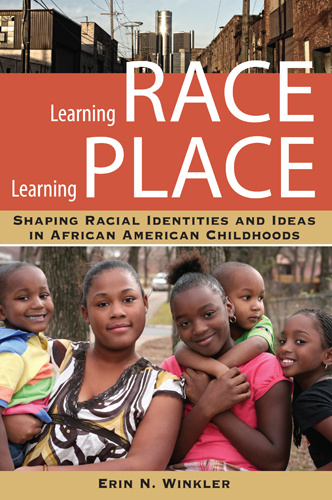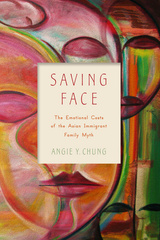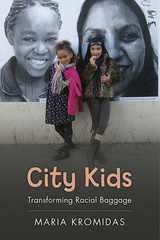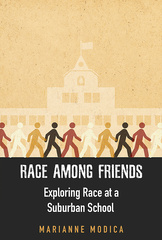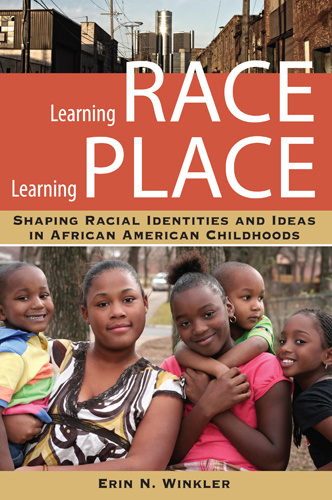
Learning Race, Learning Place
Shaping Racial Identities and Ideas in African American Childhoods
In an American society both increasingly diverse and increasingly segregated, the signals children receive about race are more confusing than ever. In this context, how do children negotiate and make meaning of multiple and conflicting messages to develop their own ideas about race? Learning Race, Learning Place engages this question using in-depth interviews with an economically diverse group of African American children and their mothers.
Through these rich narratives, Erin N. Winkler seeks to reorient the way we look at how children develop their ideas about race through the introduction of a new framework—comprehensive racial learning—that shows the importance of considering this process from children’s points of view and listening to their interpretations of their experiences, which are often quite different from what the adults around them expect or intend. At the children’s prompting, Winkler examines the roles of multiple actors and influences, including gender, skin tone, colorblind rhetoric, peers, family, media, school, and, especially, place. She brings to the fore the complex and understudied power of place, positing that while children’s racial identities and experiences are shaped by a national construction of race, they are also specific to a particular place that exerts both direct and indirect influence on their racial identities and ideas.
In Learning Race, Learning Place, Erin N. Winkler has pushed the literature on racial socialization in new directions by including children's perspectives and looking beyond the parent as sole socializer, and she has done so in an effective and accessible manner.
Learning Race, Learning Place goes beyond traditional studies of racial socialization by bringing in the geographic contexts where young people live and travel. Winkler crafts an engaging narrative about how kids both learn and create Blackness.
ERIN N. WINKLER is an associate professor of Africology at the University of Wisconsin–Milwaukee.
Acknowledgments
1. Comprehensive Racial Learning, Grounded in Place
2. Rhetoric versus Reality: Ambivalence about Race and Racism
3. Racialized Place: Comprehensive Racial Learning through Travel
4. Place Matters: Shaping Mothers' Messages
5. Competing with Society: Responsive Racial Socialization
6. Back Is Black? Gender, Skin Tone, and Comprehensive Racial Learning
7. Conclusion: "I Learn Being Black from Everywhere I Go"
Notes
References
Index

